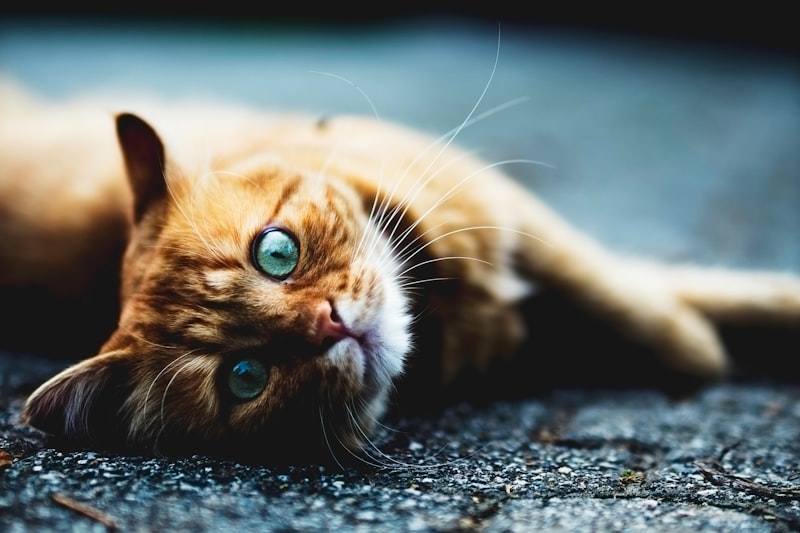Rats are highly social animals, often preferring the company of other rats. Keeping them in pairs or small groups is ideal, as it mimics their natural behavior in the wild. Social interaction not only prevents loneliness but also promotes mental stimulation and overall well-being. Owners should spend time daily playing with their rats, whether through gentle handling, providing toys for enrichment, or creating obstacle courses for them to explore.
Health-wise, maintaining a clean living space is essential. Rats are susceptible to respiratory infections, so bedding should be dust-free and changed regularly. A well-ventilated cage with plenty of room to move around helps prevent respiratory issues. It’s also crucial to provide a balanced diet rich in protein, vegetables, and grains. Fresh water should always be available in a non-drip bottle to keep it clean.
Regular veterinary check-ups are recommended to catch any health concerns early. This includes monitoring for signs of illness such as lethargy, loss of appetite, or unusual behavior. Prompt veterinary care can often make a significant difference in treatment outcomes for rats.
Caring for pet rats involves creating a stimulating environment that supports both their social and health needs. By providing companionship, a clean living space, proper nutrition, and regular veterinary care, owners can ensure their pet rats live long, happy lives.
The Ultimate Guide to Pet Rat Care: Ensuring Health and Happiness
Pet rats, contrary to common misconceptions, are clean and social animals. They thrive on companionship and enjoy interacting with their owners. When cared for properly, they can live up to 2-3 years on average, making them long-term companions.
Start by providing a spacious cage with multiple levels for exploration. Opt for a cage made of metal bars (avoiding plastic), as rats enjoy climbing and need good ventilation. Line the cage with safe bedding material like paper-based products or aspen shavings, ensuring it’s cleaned weekly to maintain hygiene.
A balanced diet is crucial for your pet rat’s health. Offer high-quality rat pellets as their staple food, supplemented with fresh vegetables like broccoli, carrots, and leafy greens. Occasional treats like fruits or whole grains can be given in moderation. Always ensure fresh water is available in a sipper bottle to prevent spillage.
Regular veterinary check-ups are essential to monitor your rat’s health. Watch for signs of illness such as lethargy, loss of appetite, or respiratory issues. Rats are prone to respiratory infections, so keeping their environment clean and dust-free is vital.
Pet rats are active creatures that require mental and physical stimulation. Provide toys like tunnels, ropes, and chew blocks to keep them entertained. Regular playtime outside the cage in a safe, supervised environment is also beneficial for their well-being.
Building a bond with your pet rat involves handling them gently and regularly. Allow them to climb on you and explore their surroundings under supervision. Rats are intelligent and can be trained to respond to their names or even perform simple tricks with positive reinforcement.
By understanding and fulfilling your pet rat’s needs for companionship, a stimulating environment, proper nutrition, and regular health checks, you can ensure they live a healthy and happy life. Remember, each rat has its own personality and preferences, so observing and responding to their individual needs is key to nurturing a strong bond.
Understanding Pet Rat Behavior: Social Needs and Interactions Explored

Rats, often misunderstood creatures, exhibit fascinating social behaviors that are crucial to their well-being in captivity. As intelligent animals, they thrive on social interactions and establish complex hierarchies within their groups. Understanding these behaviors is key to providing a stimulating and enriching environment for pet rats.
One of the most notable aspects of rat behavior is their social nature. In the wild, rats live in colonies and form strong bonds with their group members. This social structure translates into their behavior in captivity, where pet rats seek companionship and interaction. They enjoy grooming each other, playing together, and even sleeping huddled up for warmth and security.
Socialization is vital for the mental health of pet rats. A solitary rat can become lonely and stressed, leading to behavioral issues such as over-grooming or aggression. Therefore, it is recommended to keep rats in same-sex pairs or small groups to fulfill their social needs. Pairing rats from a young age helps them bond effectively and reduces the likelihood of dominance conflicts later on.
Observing rat interactions provides insights into their complex social dynamics. Rats communicate through a variety of vocalizations, body language, and scent marking. They use chirps, squeaks, and even ultrasonic sounds to convey messages to each other. Body postures such as grooming, boxing, or sidling up indicate their intentions and emotions within the group.
Creating a stimulating environment encourages natural social behaviors in pet rats. Providing ample space for exploration, hiding spots, tunnels, and toys like ropes or balls enrich their daily lives. These enrichments mimic their natural habitat and promote active engagement and mental stimulation, which are essential for their overall well-being.
Understanding pet rat behavior involves appreciating their social complexity and fulfilling their need for interaction and companionship. By observing and facilitating these social interactions, pet owners can ensure their rats lead happy, fulfilling lives in captivity.
Top 5 Health Essentials Every Rat Owner Should Know
Owning a pet rat can be a rewarding experience, but ensuring their health and well-being requires some essential knowledge. Here are the top 5 health essentials every rat owner should know:
-
Nutritious Diet: Just like humans, rats need a balanced diet to stay healthy. Their diet should include a variety of fresh fruits, vegetables, grains, and a good quality rat pellet or block. Avoid feeding them too many sugary treats or fatty foods, as these can lead to obesity and other health issues.
-
Clean Habitat: Maintaining a clean living environment is crucial for your rat’s health. Regularly clean their cage or habitat, removing any uneaten food, soiled bedding, and waste. This helps prevent bacterial growth and keeps your rat from contracting infections.
-
Regular Veterinary Care: Finding a veterinarian who is knowledgeable about treating rats is essential. Rats need regular check-ups to monitor their health and catch any potential issues early. Vaccinations are generally not required for pet rats, but your vet may recommend preventive care based on your rat’s specific needs.
-
Exercise and Mental Stimulation: Rats are active and intelligent animals that need both physical and mental stimulation. Provide plenty of toys, tunnels, and opportunities for exploration outside their cage (in a safe environment). This helps prevent boredom and encourages natural behaviors, promoting overall well-being.
-
Recognizing Signs of Illness: Being aware of signs of illness in rats is crucial. Look out for symptoms such as lethargy, loss of appetite, difficulty breathing, rough or puffed-up fur, and unusual discharge from the eyes, nose, or ears. Prompt veterinary attention can often make a difference in the outcome of any health issue.
By understanding and implementing these 5 health essentials, you can ensure your pet rat leads a happy and healthy life. Remember, being proactive in their care and providing a loving environment are key to building a strong bond with your furry friend.
Creating the Perfect Habitat: A Rat’s Home Sweet Home
Imagine stepping into the miniature world of a rat – a creature that turns everyday objects into a sprawling metropolis, a maze of adventure and survival. For these intelligent critters, a habitat isn’t just a place to eat and sleep; it’s a canvas for their ingenuity and resourcefulness.
When crafting a rat’s ideal home, think versatility. Rats are master architects, preferring spaces that cater to their diverse needs. Start with bedding: soft materials like shredded paper or fleece mimic their natural nesting preferences. Scatter it generously across the cage, allowing them to burrow and build as they please.
Next up, furnishings. Rats thrive in environments filled with opportunities for exploration. Offer a variety of toys – from tunnels to ropes – to stimulate their curious minds. These additions not only prevent boredom but also promote physical activity, ensuring a healthy, happy rat.
Now, let’s talk about food and water. Imagine you’re a rat: fresh water is a must-have, accessible at all times. Opt for a sturdy water bottle, positioned at a comfortable height. As for meals, scatter feeding stations around the habitat. This not only encourages foraging – a natural behavior – but also prevents food monopolization by dominant rats.
Ventilation is crucial. Just like us, rats need fresh air. Ensure their home has adequate airflow to prevent moisture buildup and maintain a pleasant environment. A well-ventilated cage reduces the risk of respiratory issues, common among these furry companions.
Privacy matters. Even social creatures need their me-time. Provide hideouts – cozy shelters or small houses – where rats can retreat when they crave solitude. These sanctuaries offer security and peace, essential for their mental well-being.
Lastly, cleanliness is key. Regularly clean and sanitize their habitat to prevent odors and bacteria buildup. Use mild, rat-safe detergents, and replace bedding frequently. A clean home is a healthy home for your pet rats.
Social Butterflies: Why Interaction is Crucial for Pet Rats
Have you ever noticed how social pet rats can be? They’re like little social butterflies, always seeking interaction and companionship. But why is this so crucial for them? Let’s delve into why interaction plays a vital role in the life of a pet rat.
Firstly, pet rats are highly intelligent creatures. They thrive on mental stimulation and social engagement. Interaction with their owners or other rats stimulates their minds, keeping them active and curious. Imagine if you were cooped up alone without anyone to talk to or play with—it would get boring quickly, right? Rats feel the same way.
Secondly, socialization is essential for their emotional well-being. Rats are naturally social animals that live in colonies in the wild. In a domestic setting, they still crave that social connection. When they interact with humans or other rats, they feel a sense of belonging and security. It reduces stress and loneliness, promoting a healthier mindset overall.
Moreover, interaction helps in developing trust and bonding. When you spend time with your pet rat, whether it’s through handling, playing, or simply talking to them, they learn to trust you. This trust forms the basis of a strong bond between you and your furry friend. It’s incredibly rewarding to see them respond to your presence with excitement and affection.

Furthermore, social interaction contributes to physical health too. Active rats are generally healthier rats. Engaging in play and exploration helps maintain their agility and keeps them physically fit. It’s like how we humans benefit from exercise—it’s good for the body and the mind.
In essence, being social butterflies isn’t just a personality trait for pet rats—it’s a crucial aspect of their well-being. By providing them with ample opportunities for interaction, whether it’s through playtime, cuddles, or introducing them to other rats, you’re enriching their lives in more ways than one. So next time you see your pet rat eagerly waiting for your attention, remember how much it means to them—it’s their way of saying, “Let’s have some fun together!”
Nutrition Tips for Pet Rats: What They Need to Stay Healthy
Pet rats, like all animals, thrive when provided with a balanced and nutritious diet. Understanding what foods are essential for their health can ensure they live happy and healthy lives. So, what exactly do pet rats need in their diet?
Firstly, rats are omnivores, meaning they eat both plant and animal matter. A good base for their diet is a high-quality pellet formulated specifically for rats, which ensures they get essential nutrients. These pellets should make up the bulk of their daily food intake.
In addition to pellets, fresh fruits and vegetables should be offered daily. Rats love treats like slices of apple, pear, or banana, but these should be given in moderation due to their high sugar content. Leafy greens such as kale, spinach, and broccoli are excellent sources of vitamins and minerals.
Protein is crucial for rats, especially young ones and pregnant or nursing females. Cooked eggs, lean cooked meats (like chicken or turkey), and occasional mealworms or crickets can provide necessary protein. However, avoid feeding them too much protein as it can lead to health issues.
To ensure proper digestion, rats also need access to fresh water at all times. Use a water bottle with a sipper tube attached to the cage to keep the water clean and prevent spills.
Lastly, rats are natural foragers, so scatter feeding (placing food in various spots around the cage) can stimulate their natural behaviors and provide mental enrichment.
By providing a balanced diet that includes pellets, fresh fruits and vegetables, occasional protein sources, and plenty of fresh water, you can ensure your pet rat stays healthy and happy. Remember, observing their eating habits and adjusting their diet as needed will help maintain their overall well-being.
Preventing Common Illnesses in Pet Rats: Expert Advice
Owning a pet rat can be a delightful experience, but it also comes with responsibilities, especially when it comes to their health. Just like any other pet, rats are susceptible to various illnesses that can affect their well-being. Here’s expert advice on how to prevent common illnesses in pet rats and keep them happy and healthy.
Firstly, maintaining a clean living environment is crucial. Rats are generally clean animals, but their cages can quickly become a breeding ground for bacteria if not properly cleaned. Regularly change bedding materials and clean the cage thoroughly to prevent the buildup of germs that could lead to respiratory infections or skin problems.
Secondly, diet plays a significant role in a rat’s health. Provide a balanced diet rich in nutrients. A good quality rat food mix supplemented with fresh fruits, vegetables, and occasional protein treats like boiled eggs or mealworms will help keep them healthy. Ensure they always have access to fresh water, as dehydration can quickly become a problem.
Regular veterinary check-ups are essential for preventing and catching illnesses early. Rats are masters at hiding signs of illness, so a trained veterinarian can detect any health issues before they become serious. Vaccinations may not be necessary for rats, but discussing preventive measures with your vet can help you stay informed about potential health risks.
Lastly, pay attention to their behavior and habits. Changes in appetite, activity level, or appearance could indicate underlying health problems. Being attentive to these changes allows you to intervene promptly if something seems amiss.
By following these expert tips, you can create a safe and healthy environment for your pet rats, minimizing the risk of common illnesses and ensuring they live a long and happy life.
Frequently Asked Questions
What are the essential health requirements for pet rats?
Learn about the essential health requirements for pet rats, including proper diet, habitat maintenance, social interaction, and common health issues to watch for.
What should I include in a balanced diet for my pet rats?
Learn what to include in a balanced diet for your pet rats to ensure optimal health and nutrition. Discover key components such as high-quality rat pellets, fresh vegetables, occasional fruits, and sources of protein like lean meats or eggs. Proper hydration with fresh water and careful monitoring of treats to avoid overfeeding are also essential for their well-being.
How can I create a social environment for my pet rats?
Learn how to create a stimulating and comfortable social environment for your pet rats with expert tips on cage setup, social interaction, and enrichment activities. Discover the importance of companionship, handling techniques, and ideal play areas to ensure your rats thrive socially.
What are common health issues in pet rats, and how can I prevent them?
Learn about common health issues in pet rats and effective prevention strategies with our concise FAQ. Discover how to ensure the well-being of your furry friend.
How often should I interact and play with my pet rats?
Regular interaction and playtime are crucial for the well-being of pet rats. Aim for daily sessions of at least 30 minutes to foster bonding, mental stimulation, and physical activity. This helps prevent boredom and promotes a healthy relationship with your rats.



